
Compost
Is there a business case for making large quantities of on farm compost for regenerative farmers? Compost is a much written about, much debated subject,
The Soil Heroes Foundation purpose is to trial and innovate regenerative agricultural practices to accelerate the transition to regenerative agriculture, for the good of the climate, the environment, global citizens and the farming community.
By quantifying the ecosystem benefits resulting from applying regenerative agriculture practices on our own testing fields, verifying the results with experts and making the results available publicly. We want to prove that regenerative farming is a system that works ecologically and economically.
By sharing the positive impact that regenerative agriculture has on the soil, on profitability at farm level, on product quality and on climate, we strive to encourage others to follow suit.
By bringing together many different stakeholders (farmers, scientific institutes, governments, investors, entrepreneurs...) and creating empowering communication spaces for the key stakeholders to share knowledge and best practices.

The Soil Heroes Foundation works directly with the Klompe Landbouw Farm to innovate and trial regenerative farming practices.
Currently all our regenerative agriculture trials are carried out on Klompe Landbouw. Klompe Landbouw is a third-generation Dutch family farm located on the island of Hoeksche Waard, 20km south of Rotterdam. Of its 360 hectares, 200 ha are now farmed regeneratively, which makes the Klompe Farm one of the largest experiments for regenerative farming in Europe. The aim is to complete the transition of the remaining hectares by 2025.

The farm is owned and run by Jeroen and Mellany Klompe who have been front-runner regenerative farmers for more than 10 years. In addition to being a farmer, Jeroen is an impact entrepreneur (Rechtstreex, Pymwymic and Tomasu), and Mellany has a background in environmental science and previously worked for the Dutch Waterboards and local governments agencies. She is also on the board of the Collective Cooperative for Hoeksche Waard and in this role has been a driver in creating more than 800km of field margins and biodiversity lanes on the island to promote natural pest control, pollination and biodiversity.
In partnership with the Soil Heroes Foundation, the Klompe Farm trials, and then implements a wide range of experimental regenerative practices, including biofertilisers, compost tea, lane cropping, biodiversity margins and strips, no till etc. Working with universities and researchers, the trials generate data on the effects of regenerative practices. These results are complemented by the farms own farm logs – recording the adaptation of the farming practices, the yields, the effects of the weather on the different plots and so on. This is now also being supplemented by a purpose built on farm lab being run by the Foundation since 2022.
Currently the farm grows a wide range of crops including potatoes, onions, brown beans, kidney beans, soybeans, several types of wheat, carrots, naked oats and buckwheat, and are with the Foundation, trialling several new regenerative crops such as flax, poppy seed, rape seed, sunflower, sesame seed and land rice.
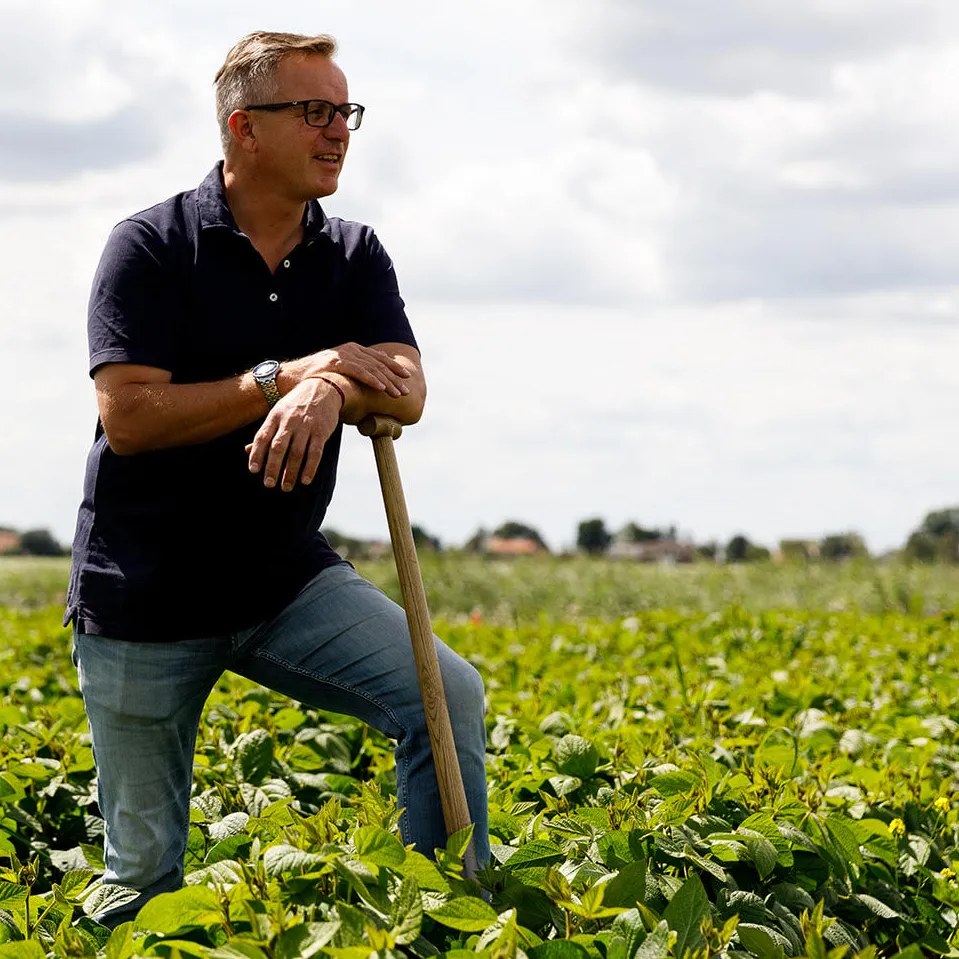
We aim to make the benefits of regenerative agriculture visible and measurable, setting up a practical example that regenerative agriculture restores soil health effectively. We believe this will encourage farmers to adopt nature-inclusive farming practices and drive systemic change.
Jeroen and Mellany Klompe
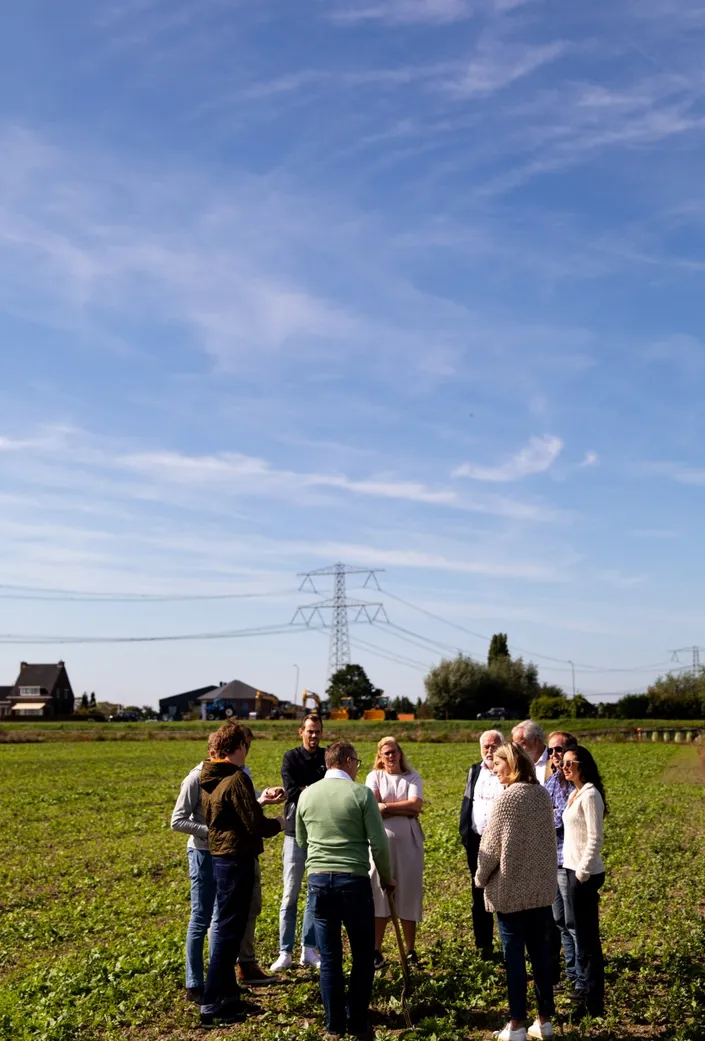
Carrying out these trials on a commercial farm enables the Foundation to bridge the divide between academic research and farmers’ daily reality, thus shortening the jump from research to practice. It allows us to combine scientific results with solutions for daily farm management challenges and to understand the economic feasibility of such an approach. This is crucial for farmers. In order to facilitate the transition to regenerative farming practices, farmers need to see regenerative agriculture in practice –the machinery used, the man hours, the soil data, the resulting yields, and the market pathways for the products. Thus this approach creates a more relatable and thereby influential demonstration model for other farmers, for buyers, for food processors, and for policy makers.

Is there a business case for making large quantities of on farm compost for regenerative farmers? Compost is a much written about, much debated subject,
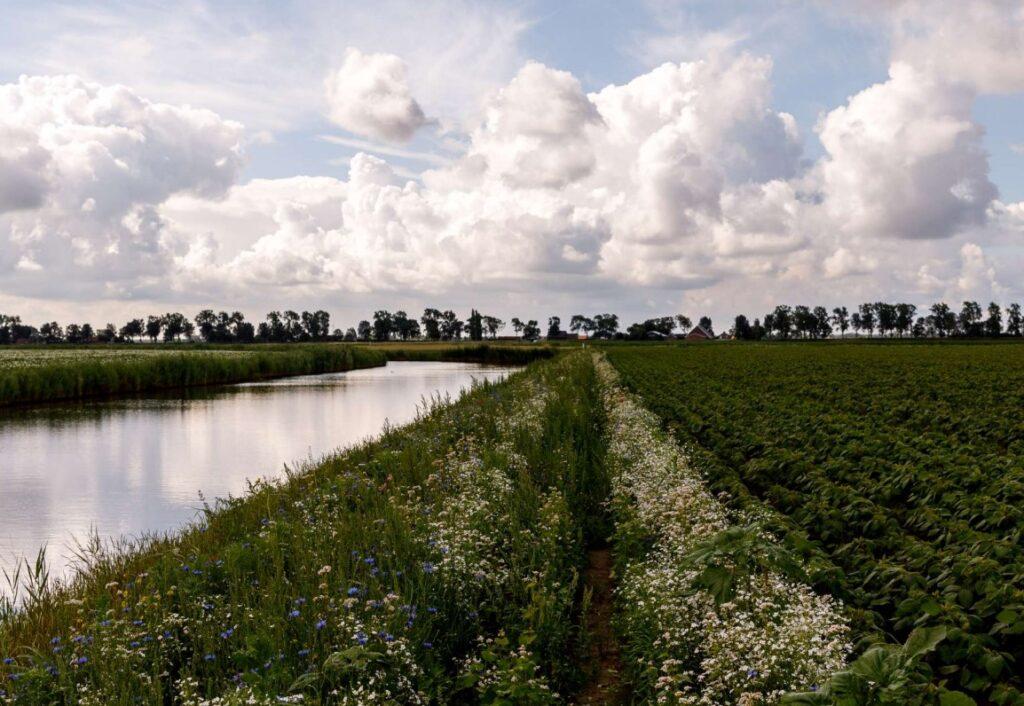
Regenerative agriculture includes a toolbox of practices which have the potential to not only reverse the decline in our biodiversity, but to actively build it.
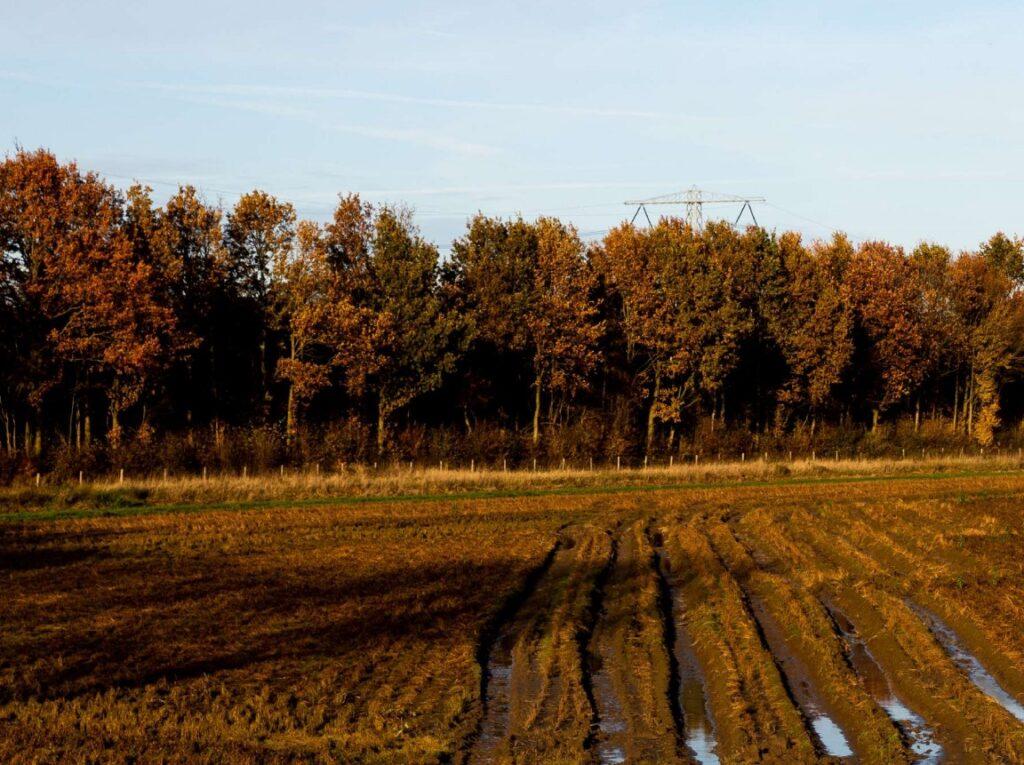
Quantifying the improvement in soil’s water retention capacity resulting from applying regenerative farming practices. The soil’s water holding (or retention) capacity is the amount of
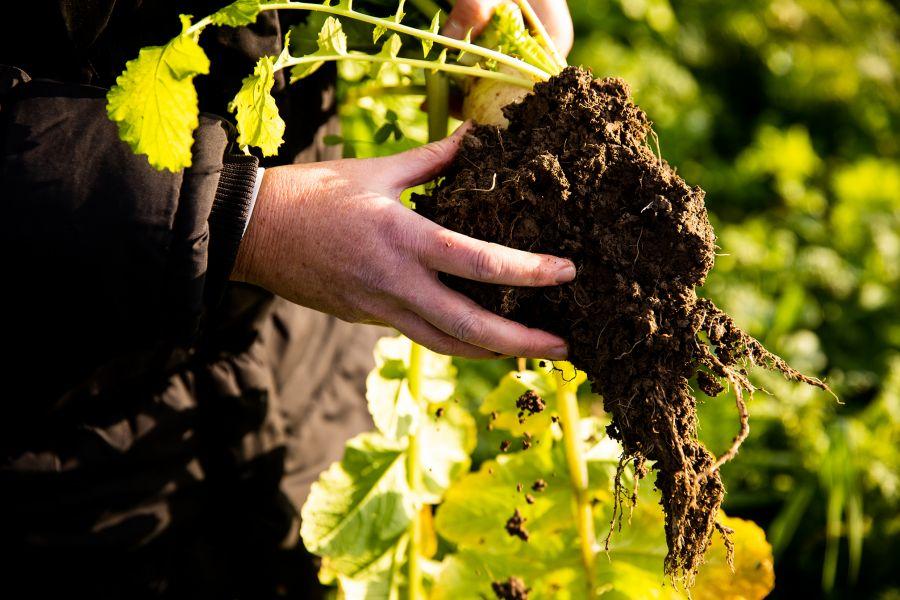
The Nutrient density proof of practice project is a side-by-side comparison of regenerative and conventional farming practices on a commercial scale and will study the
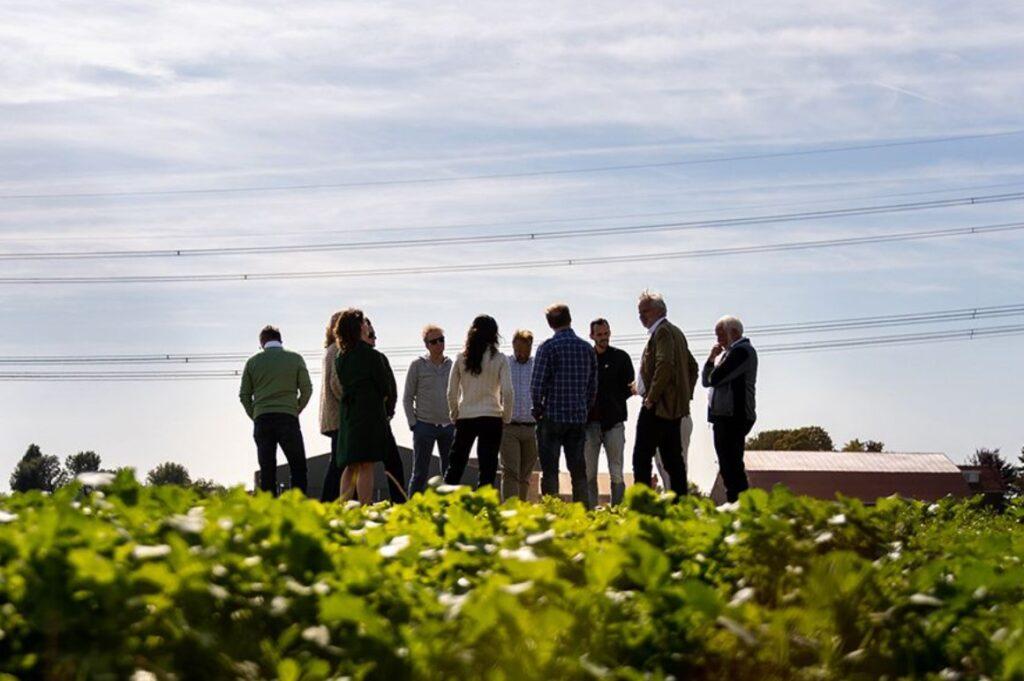
For over 7 years, the Klompe Farm has been trialling regenerative farming methods in its transition to regenerative agriculture. In this guidebook, the Soil Heroes
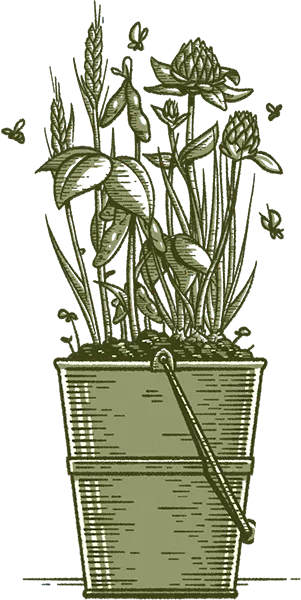
Stougjesdijk 168
3271 KG Mijnsheerenland
The Netherlands
VAT: NL8598.48.206.B01
RSIN: 8598.48.206
Soil Heroes Foundation is registered as an ANBI
We at Soil Heroes Foundation like to share updates, insights and relevant articles related to the transition towards regenerative farming. Sign up to make sure you don’t miss an issue.
Do you want to help us change the world through agriculture? Visit our donation page (button below), or get in touch with Annabelle.